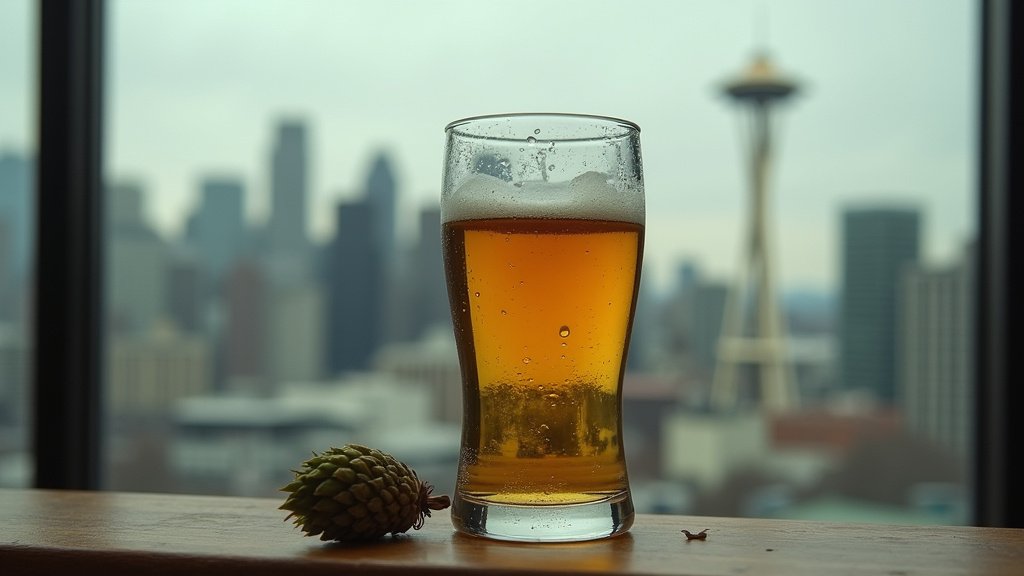A recent high-profile ranking of America’s premier beer cities has sent ripples through urban development circles, with particular attention focused on Seattle’s conspicuous absence from the top tier. The widely discussed Inside Hook ranking of the best beer cities in America recently unveiled its findings, and in a development many found surprising, Seattle failed to make the top 10.
The Unsettling Verdict: A Craft Beer Crown Shift
The hierarchy established by Inside Hook presents a clear picture of shifting urban appeal. Leading the pack were familiar names in the craft beer scene: Asheville, N.C., Denver, and Portland, ME. Perhaps most notably, Seattle’s Pacific Northwest neighbor, Portland, Oregon, secured an impressive fourth-best beer city ranking on the list. This strong showing for Portland, Oregon, juxtaposed against Seattle’s exclusion, is more than just about hops and malts; it signals a potentially significant reevaluation of which cities are currently most attractive to a crucial demographic.
The implications extend far beyond casual Friday happy hours. For urban economists and city planners, such lifestyle rankings are increasingly viewed as crucial indicators of a city’s magnetic pull. They are believed to reveal which urban centers are best positioned to attract not just tourism, but also the highly sought-after tech and other footloose young workers who are less tied to traditional industries and more drawn to vibrant, livable environments. The absence of Seattle from such a prestigious list, particularly in a category as culturally significant as craft beer, could be interpreted as a canary in the coal mine for the city’s long-term economic vitality.
Seattle’s Congestion and Cost Conundrum
Commentary surrounding the ranking points to deeper structural issues impacting Seattle’s contemporary appeal. The rising cost of living and persistent congestion have long been subjects of public debate within the Puget Sound region. These factors, once seen as mere inconveniences, are now being framed as potential deterrents for the very demographic that fueled Seattle’s recent boom.
There’s a growing sentiment that Seattle, due to these escalating challenges, might be past its prime as a magnet for new, unattached talent. While the city still boasts a powerful economy driven by tech giants, the lifestyle component, historically a significant draw, appears to be losing some of its luster when compared to emerging contenders.
Beyond the Brew: Holistic Lifestyle Indicators
Of course, a city’s allure isn’t solely defined by its brewery count. Historically, a broader array of indicators has been used to gauge which cities are most attractive to young professionals and those seeking dynamic environments. These traditional barometers include the vibrancy of music scenes, the accessibility and quality of outdoor attractions, and the general prevalence and quality of local pubs.
Seattle has historically excelled in many of these areas, boasting world-renowned music venues and unparalleled access to natural beauty. However, the latest beer city news suggests that perhaps the overall package is no longer as compelling as it once was, or that other cities are simply doing a better job of cultivating the kind of lifestyle amenities that appeal to this mobile workforce.
The Path Forward: A New Economic Focus for Seattle?
This evolving landscape suggests that Seattle may need a new economic focus, or at least a renewed strategy for maintaining its competitive edge. If lifestyle rankings, even seemingly niche ones like beer cities, are indeed proxies for where young talent wants to live and work, then Seattle faces a challenge in reasserting its position.
For years, Seattle’s rapid growth and innovation have been the envy of many urban centers. Yet, the current news from the lifestyle front indicates that the city cannot rest on its laurels. As other cities, like Portland, Oregon, continue to cultivate robust and appealing urban experiences, Seattle may need to recalibrate its approach to attract the next wave of innovators and young professionals, ensuring its long-term prosperity is brewed from more than just past successes.




